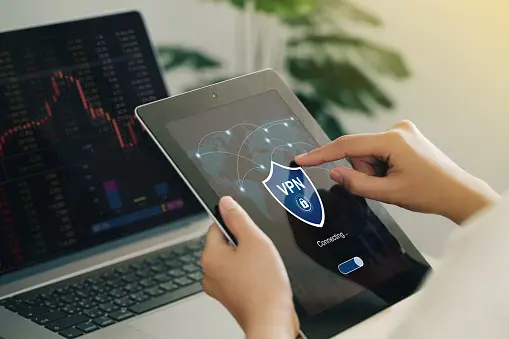In an era where our lives are increasingly intertwined with the digital realm, safeguarding our online presence is of utmost importance. VPNs for Windows have emerged as a powerful tool to protect our data, maintain privacy, and access restricted content. This article explores VPNs for Windows in-depth, offering 25 expert tips to help you navigate this vital aspect of the digital world.
VPN for Windows: What Is It?
A VPN for Windows is a virtual private network that extends a secure connection over the internet. It acts as a protective shield, encrypting your data and ensuring your online activities remain private.
- Understanding VPNs for Windows
Before delving into the intricacies, let’s establish a foundational understanding of VPNs for Windows. At its core, a VPN encrypts your internet connection, routing it through a secure server, thus masking your online identity. This layer of encryption ensures your data remains confidential.
- Why You Need a VPN for Windows
Wondering why you need a VPN for your Windows device? The answer is simple: enhanced security and privacy. Whether you’re browsing, shopping, or working online, a VPN shields your sensitive information from prying eyes, making it a vital tool in the digital age.
- How VPNs Work
Understanding the inner workings of VPNs is crucial. VPNs employ encryption protocols to secure your data. When you connect to a VPN server, your internet traffic is encrypted, making it indecipherable to hackers and cybercriminals.
- Choosing the Right VPN Provider
Selecting the right VPN provider is a pivotal decision. Look for features like strong encryption, a no-logs policy, and a wide server network. A reputable provider ensures your VPN experience is seamless and secure.
- Setting Up Your VPN on Windows
Setting up a VPN on your Windows device is a straightforward process. Most VPN providers offer user-friendly apps that guide you through the setup. Ensure you follow the provided instructions for a hassle-free installation.
- Connecting to a VPN on Windows
Once installed, connecting to a VPN is as simple as clicking a button. You can choose from various server locations to optimize your internet experience while maintaining security.
- VPN Protocols: Which One to Choose?
VPN protocols determine the level of security and speed. While there are several options, OpenVPN and IKEv2/IPsec are among the most secure choices. Your selection should align with your specific needs.
- Server Locations: Why They Matter
The location of your VPN server plays a crucial role in your online experience. Opt for servers closer to your physical location for faster speeds, or select servers in other regions to access region-locked content.
- VPN and Public Wi-Fi: A Must-Have
Public Wi-Fi networks are notoriously insecure. Using a VPN on public Wi-Fi encrypts your connection, safeguarding your data from potential threats.
- Bypassing Geo-Restrictions with a VPN
Do you want to access content restricted in your region? A VPN can help you bypass geo-restrictions by making it appear as though you’re browsing from a different location.
- VPNs for Streaming: Unlock Global Content
Love streaming movies and shows? VPNs can unlock content libraries from around the world, expanding your entertainment options.
- VPNs for Torrenting: Stay Safe While Sharing
If you engage in torrenting, a VPN is a must. It conceals your IP address, keeping your torrenting activities private and secure.
- Split Tunneling: Balancing Security and Convenience
Split tunneling allows you to use a VPN for specific apps or websites while maintaining a regular connection for others, striking a balance between security and convenience.
- VPN Kill Switch: Protecting Your Data
A VPN kill switch is a fail-safe mechanism. If your VPN connection drops unexpectedly, it cuts off your internet access to prevent your data from being exposed.
- VPN Logging Policies: Know What’s Stored
Understanding your VPN provider’s logging policies is essential. Opt for a provider with a strict no-logs policy to ensure your data isn’t stored or shared.
- VPNs and Online Gaming: Reduce Lag and Protect Identity
Gamers can benefit from VPNs too. They reduce lag, protect against DDoS attacks, and keep your gaming identity safe from potential threats.




